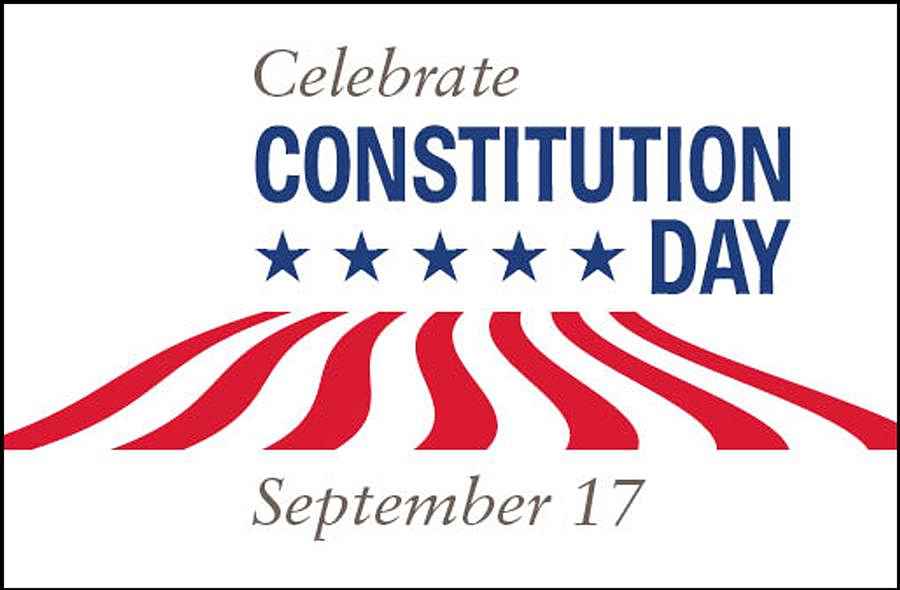





See listing of Recent and Most Popular articles on the Home Page
Senior Moments
Category: Citizenship / Topics: Government • History
The US Constitution Revisited
by Dan Seagren
Posted: September 17, 2021
On February 29, 1952, Congress designated September 17 as Constitution Day and Citizenship Day. This day commemorates the signing of the U.S. Constitution on September 17, 1787, and recognizes all American citizens…
The United States Constitution has served as the supreme law of the United States since taking effect in 1789. The document was written at the 1787 Philadelphia Convention and was ratified through a series of state conventions held in 1787 and 1788. Since 1789, the Constitution has been amended twenty-seven times; particularly important amendments include the ten amendments of the United States.
The first Constitution was called the Articles of Confederation, which was ratified in 1781. The Articles of Confederation did have issues however. The main issue was that the government had no money or way to get money under the Articles. The army wasn't being paid and was depopulated.
The Constitution creates the branches of government and gives them the power to govern. However, it also protects the citizens of the United State and guarantees their basic rights. Historically the Constitution Articles of Confederation was called the Articles before becoming the Constitution of the United States and the Federalist Papers has been an important guide to the interpretation and application of the US Constitution for over 230 years.
The above is a rather brief condensed version of its beginning so let us move to January 2021 when President Biden abolished the 1776 Commission with one of his executive orders. Although the 1776 Report was made available to the public by May 2021 a newly established 1776 Commission met at the Hillsdale College to discuss civic education, education curricula (badly needed), state civic reform efforts, pending federal legislation and executive action, and future acts of the Commission. And Presidential executive orders are not always permanent.
Liberal Arts Education can vary considerably like decrees that can include knowledge of human resources, economics, law, sociology, and employment with relationships etc. that can become strictly civil (domestic, nationalistic, political) with little or no Constitutional requirements (including morality and spirituality). History can be selective instead of factual, allowing drifting away from the norm if the US Constitution is weakened, abandoned, or replaced.
Educators need the original US Constitution and God the Father Almighty. so don't forget that our Nation was founded as a Christian Nation, not secular. How many nations can you count that were founded in that same way? The US was and could be very unique so let's keep it that way which won't be easy.
PS Annette Gordon-Reed examines the history of white supremacy in the United States from the eighteenth century to the present. Racially based slavery warped the country’s prospects from the beginning, Gordon-Reed writes, and its abolition did not erase the corrosive ideas that upheld the system for generations and that continue to destroy American lives today.See what we are up against and she is not the only one. Lets rethink our origin and act accordingly.
Search all articles by Dan Seagren
Dan Seagren is an active retiree whose writings reflect his life as a Pastor, author of several books, and service as a Chaplain in a Covenant Retirement Community. • E-mail the author (su.nergaesnad@brabnad*) • Author's website (personal or primary**)* For web-based email, you may need to copy and paste the address yourself.
** opens in a new tab or window. Close it to return here.
Posted: September 17, 2021 Accessed 718 times
![]() Go to the list of most recent Senior Moments Articles
Go to the list of most recent Senior Moments Articles
![]() Search Senior Moments (You can expand the search to the entire site)
Search Senior Moments (You can expand the search to the entire site)
![]() Go to the list of Most Recent and Most Popular Articles across the site (Home Page)
Go to the list of Most Recent and Most Popular Articles across the site (Home Page)
 Loading requested view...
Loading requested view...